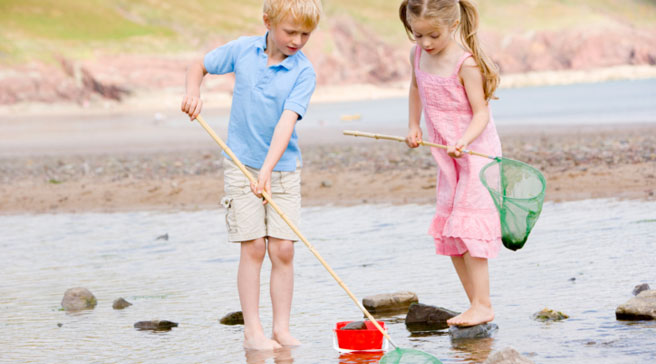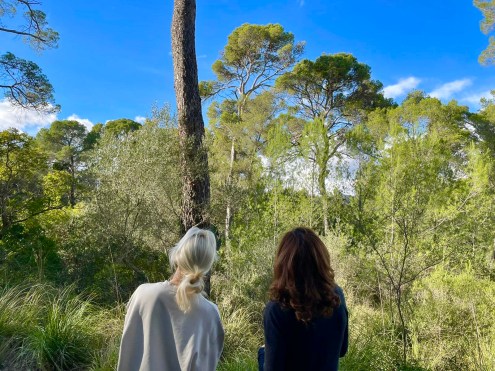Develop your child’s curiosity
Part of the magic of childhood is the ability to get lost in the worlds of imagination and discovery. What’s more, says Emma Cook, nurturing our children’s curiosity will strengthen our bond and help them grow

Curiosity compels us to connect with the world, reach out and test its boundaries, establish where they end and everything else begins. For children, curiosity is inextricably linked with physical exploration, touching, controlling, creating. It’s intensely pleasurable, a sensuous adventure that is rooted in discovery; like the 18-month-old who turns a light switch on and off, over and over again, to learn about cause and effect.
Curiosity in children is innate and undeniable. Taking an interest in our children’s curiosity is not just a way of strengthening our bond — understanding what excites, worries or frightens them — it is also a crucial step in helping their transition to a happy adulthood. Dr Martin Seligman has identified curiosity as one of the 24 key strengths that contribute to wellbeing. What look like simple children’s games are crucial to fostering an adult’s love of new ideas and experiences, and the confidence to keep discovering.
Questions, questions
Once we’ve learned to talk, our inquisitiveness takes on a more intellectual, philosophical and emotional dimension. Children begin innocently to challenge what their parents prefer to gloss over. ‘Why is that man sleeping on the street?’ ‘Why does God allow wars to happen?’ ‘Why do we all have to die?’ It is often a struggle to offer satisfactory answers, as it should be. Their curiosity forces us to see the world afresh and challenges our adult assumptions. Encourage children to analyse their own questions and work towards an independent answer, to be as curious about the questions they ask as the answers they seek. If you’re ambushed by a tricky enquiry, such as ‘Do you love my sister more than me?’, ask ‘Is there a reason you’re asking that now?’ If we question what we see around us, our children will be more likely to mimic that behaviour, too.
The whole truth
As much as curiosity can be nurtured with adult interaction and encouragement, it also flourishes when children are left to their own devices. Independent play is closely connected to self-esteem and encourages children to feel they can make their own decisions and express their own interests. Among the hundred or so psychologists I approached in researching my book, all of them agreed on one golden rule: if you want your child to learn from you, tell the truth. Always. If they ask, ‘Have you ever smoked?’, and you have, don’t feel you have to conceal it. It is a valuable lesson for them to learn that adults are fallible and everyone can make mistakes. If they know you’re being honest in every answer you give, they will respect you and always come to you for more answers.
Emma Cook is the author of Ask Your Father: The Questions Children Ask And How To Answer Them








